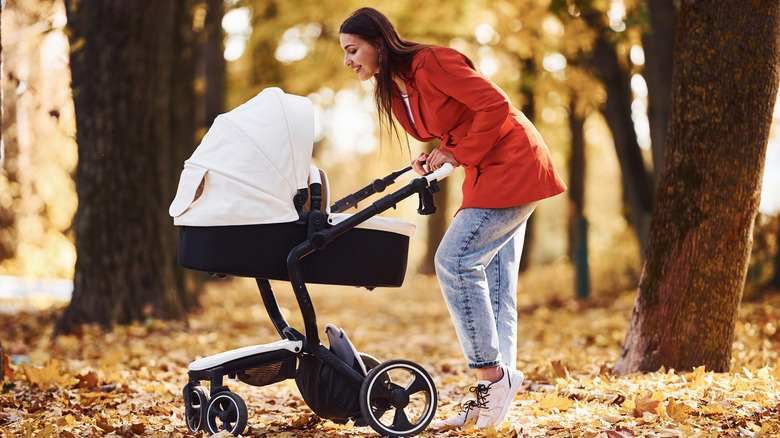Science Says Fall Babies Are More Likely To Have This Trait
There is a lot to be said about an autumn birthday. Halloween parties, trips to the apple orchard, and sharing cupcakes with classmates are just a few that spring to mind. But in 2014 researchers found that there might be another benefit waiting for babies born throughout the fall, one that might just give them a leg up on their classmates.
According to The Guardian, researchers based in Canada and the UK gathered 8,550 schoolchildren and put them through physical fitness tests. The students were evaluated for cardiovascular health, lower body strength, and grip strength. Researchers then grouped the results by age before breaking down each age bracket by month, with the intention of discovering whether birth month affected physical fitness. They published their results in the International Journal of Sports Medicine, revealing that autumn babies scored higher in all three ranges. November babies were the fittest overall, while October babies came in second.
At first glance it seems obvious that schoolchildren born in fall, at the early end of school grade cut-off dates, may be more physically developed than their peers who were born later. Researchers accounted for this, however, and still found that autumn children had an advantage. The answer, they think, lies in sun exposure.
Vital vitamin
When a pregnant woman is due in the fall, sunny summer days make up a good portion of her third trimester (and possibly some of her second). This increases her vitamin D production which, in turn, increases her fetus' vitamin D exposure. Researchers concluded this may be the key explanation of their results: "Seasonal differences in intrauterine vitamin D concentrations seem most plausible," they explained to The Guardian. Their assertion gained more credibility thanks to a 2016 discovery that increased vitamin D intake also seemed to prevent physical decline in older adults (via Harvard Health Publishing).
Researchers are still trying to find the root of these results. They want to know what exactly about vitamin D makes it so useful, and why it has the effects it does. Their findings still stand in the meantime, though prospective parents might not want to schedule their pregnancies by season just yet. Natalie Dunman, head of performance pathways for UK Sport, the UK's official Olympic and Paralympic organization, told The Guardian that the study's results only really apply to schoolchildren. Once an athlete is out of school and competing in adult organizations, the effects of birth month dissipate and people born throughout the year seem evenly matched.


